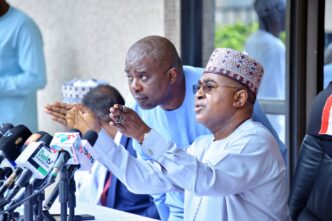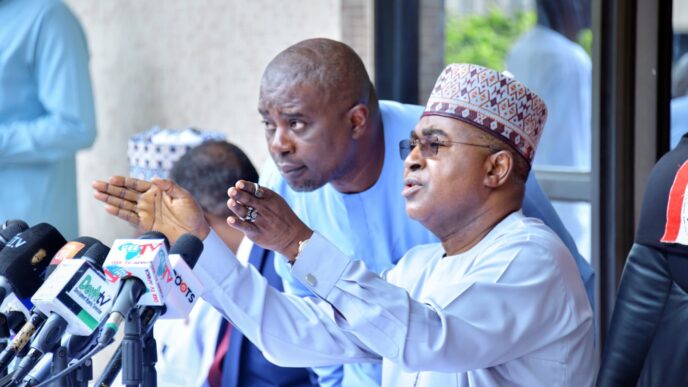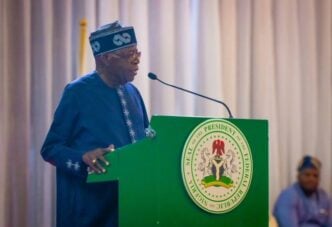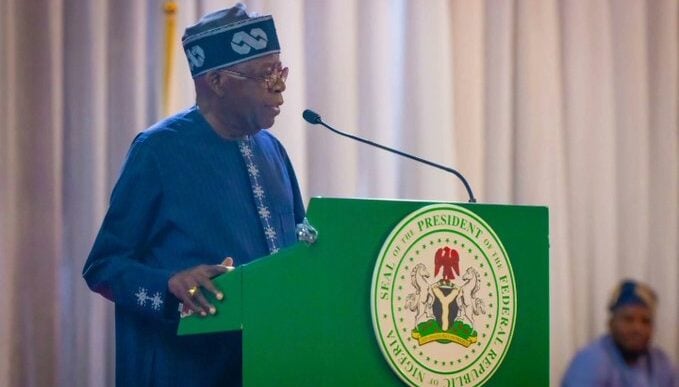In July 1986, Nigeria’s military president, General Ibrahim Babangida, launched a public policy initiative hailed as the silver bullet for Nigeria’s distressed economy: the structural adjustment programme (SAP). A local adaptation of an IMF/World Bank initiative, SAP was intended to stabilise the economy. However, within a year of its implementation, the programme had left a trail of hunger, industry closures, unemployment, and acute poverty. Instead of achieving its objectives, SAP exacerbated the economic crisis, leaving Nigerians groaning under economic hardship. SAP was part of a broader World Bank/IMF global economic policy framework.
While SAP failed from a broad perspective, certain socio-economic elements—like poverty alleviation, job creation, and rural development—experienced some success in the medium term.
Fast forward 37 years to 2023, and Nigeria’s new political leadership revisited two critical elements of the 1986 SAP: the policy on petrol subsidies and the floating of the naira. While these policies’ medium to long-term impacts are still uncertain, their short-term effects bear an uncanny resemblance to those of their predecessor.
The issue is not necessarily the nobility of these policies’ intentions—after all, the road to hell is often paved with good intentions. Nor is it about the appropriateness of the policies themselves. What’s indisputable is that these public policies have imposed unintended consequences, hurting the very people they were meant to help. These aren’t the only government policies in Nigeria, at both the national and state levels, that have failed to achieve their intended objectives or have produced adverse effects.
Advertisement
It is not uncommon to see government policies fail to meet their goals. Such failures drain public resources, exacerbate the suffering of the people rather than alleviate it, and erode public trust in the government. The question is, why? As Nigeria continues to embark on new public policies that, if not carefully examined, may produce unintended consequences, I will explore why public policies fail in Nigeria and how we can do things differently.
First is the need for more rigour in policy conception. Most policies emerge as reactive measures to imminent problems the government seeks to solve. This reactive approach often forces a sense of urgency in policy formulation, leaving little time for proper planning, research, cost-benefit analysis, and scenario mapping of both intended and unintended consequences. We often see policy statements made in the media by leaders on the fly, with policy-implementing institutions scrambling to catch up in executing these policies. This approach is dangerous in a democracy and detrimental to economic development. The lack of rigour in developing the fuel subsidy removal policy is evident for all to see.
For instance, the president made a straightforward policy statement during his inaugural speech that “oil subsidy is gone,” triggering immediate reactions from the people and the economy. However, there was no clear, overarching policy framework to guide the process, consider intervening variables, anticipate unintended consequences, and devise ways of mitigating them. The policy apparatus was unprepared, and implementation has been a game of catch-up with unintended results. The ongoing attempts to rein in the consequences of this policy have largely failed, and the damage is evident for all to see.
Advertisement
Contrastingly, the Philippines, one of the few countries that successfully removed petrol subsidies, took a markedly different approach. The government meticulously laid the groundwork for the policy over nearly five years, engaging independent assessors to evaluate the potential impact of subsidy removal and mitigation measures. The implementation was phased, with provisions for targeted support to assist vulnerable citizens, ensuring the impact was cushioned for lower-income households. The Philippine government also proactively communicated the rationale behind price changes and the benefits of deregulation, which helped build public trust and acceptance of the reforms. This strategic, long-term approach fostered a more sustainable oil and gas market in the country, a stark contrast to Nigeria’s short-term, reactive policy formulation.
Second, policymakers in Nigeria are often driven by short-term gains and personal interests. The prospect of immediate results or benefits too easily sways them, and they seldom consider the long-term impact. True leaders think about generational impact and provide solutions that transform society for posterity. Unfortunately, such leaders are not common in Nigeria. Many policymakers are so short-sighted and parochial that their focus on policy is as narrow as pursuing the subsequent election victory. Even when good policies are created to benefit society, a lack of political continuity often kills their implementation. Political discontinuity in policy execution has led to frequent policy disruptions. New policymakers tend to abandon previous policies to create new ones, even if the old policies are addressing the challenge it was designed to address or nearing completion. This constant change fosters confusion and instability.
Thirdly, policymakers in Nigeria often lack a deep understanding of the policies they plan to implement or the economic context. Instead of developing solutions that are tailored to Nigeria’s unique circumstances, they often defer to foreign solutions—a copy-and-paste approach, without the necessary adaptation. The floating of the Naira under this administration is a prime example. On paper, the policy aligns with recommendations from international financial institutions like the IMF and World Bank and was heralded as the solution to Nigeria’s exchange rate problems. However, previous governments resisted the policy due to fears of unintended consequences in an import-dependent and mono-product export economy. This lack of understanding and the blind adoption of foreign solutions have led to the current exchange rate crisis. Maybe adaptation could have produced a different result.
Nigeria’s economic structure means that fluctuations in the Naira’s value against major currencies directly affect the cost of living for millions of Nigerians, especially those living in multidimensional poverty. The government was overly optimistic, expecting the Naira to stabilize at around N750 per USD. However, within a year of implementing the policy, the exchange rate has mostly harmonized and partially deregulated (with the CBN still intervening to influence the Naira’s value). However, the currency has depreciated by over 300%, from N500 per USD at the start of this administration to N1600 recently. The problem lies in the supply of USD in the market, which neither the Nigerian government nor the private sector has significantly impacted. Demand far outweighs supply, leading to a severe erosion of the naira’s value.
Advertisement
It is evident that policymakers in Nigeria often underestimate the challenges and potential unintended consequences of their policies. This was the case with both the oil subsidy removal and the exchange rate floating. As a result, they have yet to find answers to the many unintended consequences that have nearly overwhelmed the planned policy objectives. Most Nigerians are less concerned with the policies’ good intentions and more affected by the harsh consequences. Furthermore, there was poor communication with stakeholders. The government needed to adequately prepare the public for the unintended consequences or provide sufficient remedial and palliative measures. As the saying goes, ‘To be forewarned is to be forearmed.’ Nigerians were unprepared for what they are now facing.
Moreover, misleading narratives led to these policies. The government framed the economic situation under the Buhari administration as dire, suggesting that without these two policies, the country would collapse. This doomsday narrative initially led to the policies being received as the panacea to Nigeria’s economic woes. But time is proving the opposite, and people are increasingly frustrated. The difference between the tail end of Buhari’s regime and now feels like a lifetime. The price of everything has at least doubled, if not more.
I advocate for a more intellectual approach to governance. Politics seems to dominate everything, and this lack of capacity to engage with the complexities of governance leads to ineffective policymaking and implementation. Nigeria must develop a national policy elite capable of creating, pursuing, and sustaining sound policies. Nigerian leaders must work to bridge the gap between policy formulation and implementation. Most policies fail at the implementation stage due to conflicting interests and the impunity that hinders Nigeria’s economic and social progress.
In Nigeria, the persistent failures of public policy reflect more profound issues in the governance structure, where reactive measures, short-term thinking, and a reliance on foreign templates overshadow the need for tailored, well-researched, and rigorously planned policies. The consequences of these approaches are evident in the current economic distress and public disillusionment. Nigeria must cultivate a new generation of leaders and policymakers who prioritize long-term societal transformation over immediate political gains to break this cycle. These leaders must embrace a more intellectual and context-sensitive approach to governance, ensuring that policies are well-conceived and effectively implemented, with robust mechanisms in place to mitigate unintended consequences. Only through such a paradigm shift can Nigeria hope to achieve sustainable economic and social progress.
Advertisement
Views expressed by contributors are strictly personal and not of TheCable.
Add a comment












